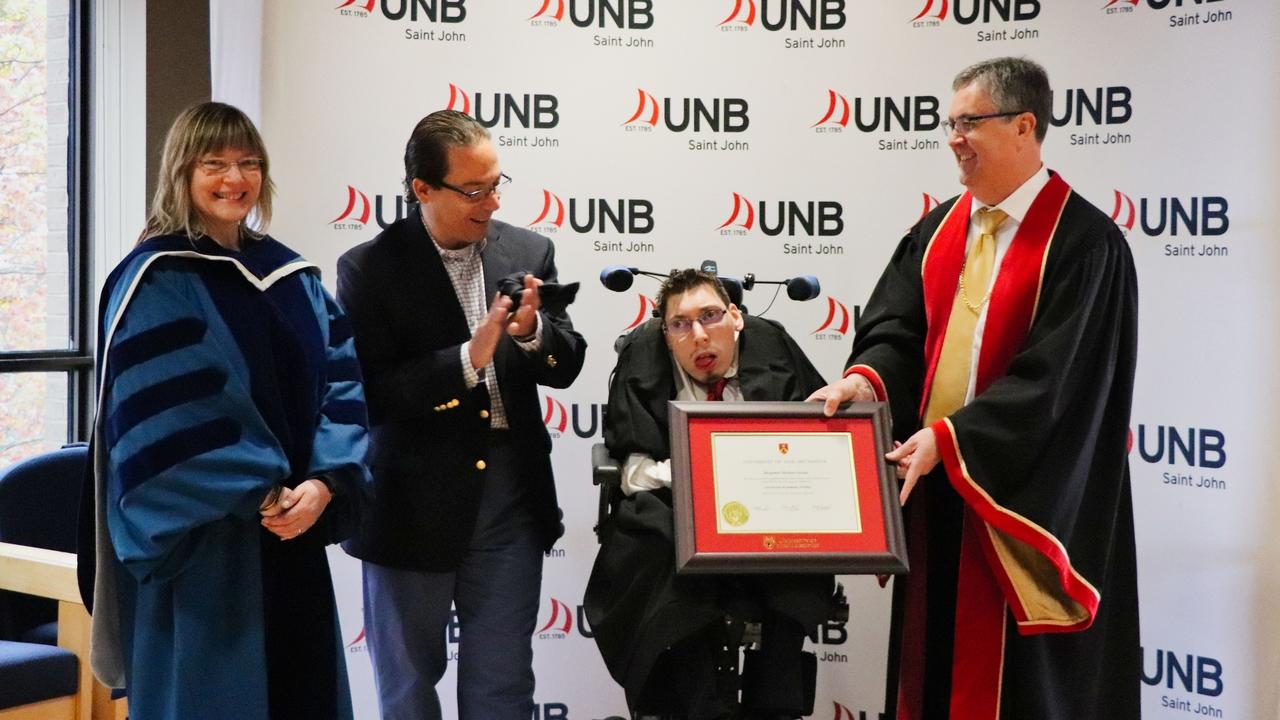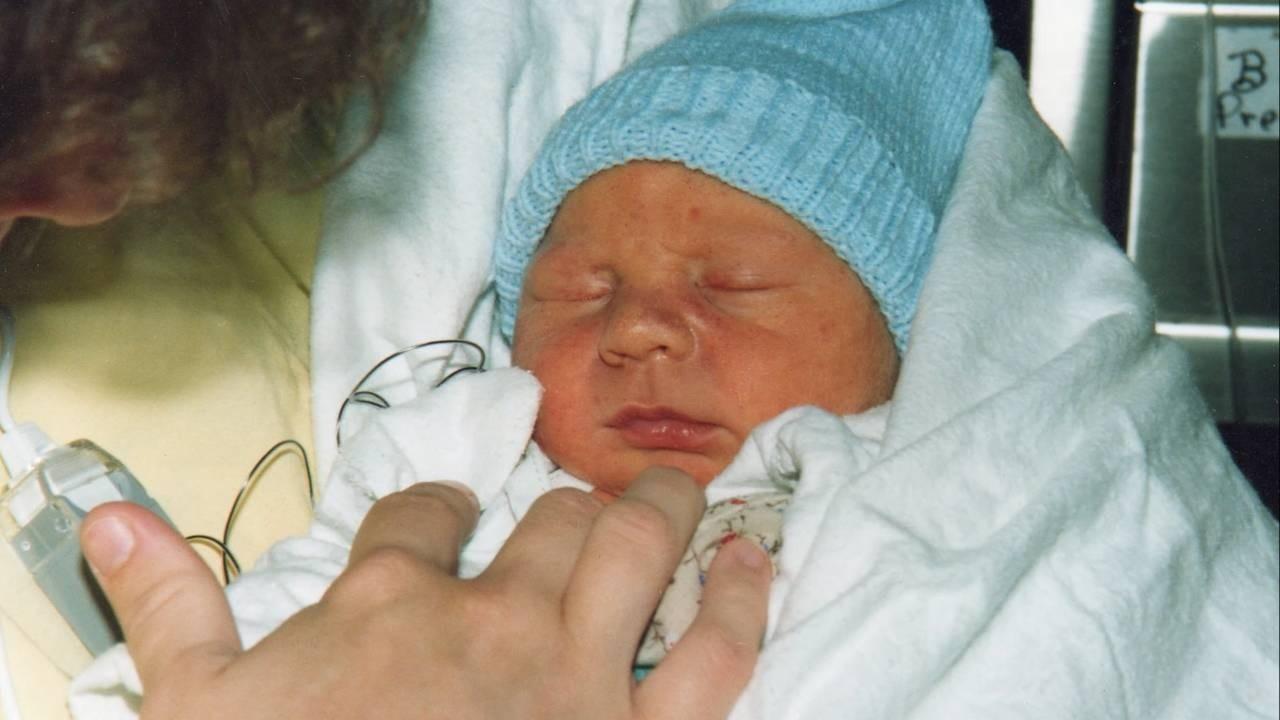How To Experience The Gift Of Caregiving
My father lived to see his 100th birthday in 2017. It was a huge celebration.
On that day, it seemed he would live forever. So when that didn’t happen 8 months later, I was completely unprepared, even though he was in his 101st year.
My father knew well the importance of family and he instilled those values in me. So, we naturally did whatever we could to ensure his twilight years were fulfilling and comfortable despite shouldering the huge responsibilities of Ben’s continual care and development.
His passing was a reckoning of sorts, that being given the role of a family caregiver is really a tremendous gift. Here are the 4 lessons that came out of that soul searching.
1 - Be Truly Present In All That You Do, So You Can Be Ready For The Unexpected:
Being present means to be attentive and focused on what’s in front of you. I always had a thousand thoughts floating through my mind that had nothing to do with the task at hand. Those times we had...
What A Great Caregiver Feels Like
“There’s nothing anyone can do to help you!”
That was more or less the message we were given when Ben arrived in our lives, having been born with severe, complex disabilities.
No one actually said those words, of course, but that was what we were left with at almost every turn.
The conversations were mainly focused on all of Ben’s “problems” and how there really wasn’t a fix to those problems.
It was easy to get caught up in all that negativity, to believe that’s all there was. For a long time, we had no idea what path to follow, or if a path existed at all.
With so few giving us much hope, we relied on brute force to get things done and help Ben succeed.
After a few years of that exhausting pace, where it was just me and Jan against the world, so-to-speak, we realized we needed help. We couldn’t do this all our own.
It wasn’t good for our health.
It wasn’t good for our...
What's The Right Type of Home Care That I Need?
Before you hire a caregiver, you need to have a clear picture of the type of support you're looking for. The duties and activities your caregiver would be expected to do ... or not.
Some are able to master just about anything and take the initiative to get things done, and others not so much.
For example, maybe to get started, your family member (like your parent) only needs companionship, to be with them for medical appts, getting groceries ... that sort of thing. A friend of mine told me the story of a "smoking buddy" she had for her mom, just to be with her certain times through the day.
Sometimes that's all you need to get your family used to having a "stranger" around.
Oh, and you probably can't find one person who can fulfill all these roles.
Start with where you need the most help, or what is the easiest to get off the ground.
If you've been thrust into a caregiving role, we can help you sort through the confusion.
Send me a quick email to [email protected] to get...
Give & Be Kind!
If you had to write down 3 things that were going well right now, what would they be?
A few days ago, I thought that was a clever set-up question to ask - kinda challenging but would drive home the message that we all have things that we’re thankful for, right? And because focusing on abundance and what’s plentiful is a foolproof way to cope with whatever life throws at you, especially in this COVID-19 world we’re stuck in.
But then the details started coming out about a crazed man going on a shooting rampage in my neighbouring province of Nova Scotia. And how many lives he has forever changed. I think the number of people killed is up to 23.
I began thinking about the children who have been left behind. How horrible that must be. How alone they must feel. How cheated and victimized and foresaken they must feel. Even if they do get past the violation of being terrorized and running for their lives, they will have to face the grim reality that their mom or dad is...
When Your Caregiver Quits
If you have a caregiver in your life – I mean someone you've hired, not a family member – then you know how good it feels to have that person around to support you, even if it's only for a few hours a day.
You don't want to lose that. But eventually they're gonna quit and there's nothing you can do about that. So what do you do?
It's happened to us on a few occasions and a couple of times we were just blindsided by the news. The first one was about ten years ago.
I was sitting in the evening and the phone rang, and the phone rarely rings in our house. And it was Lisa, Ben's caregiver, so I picked up the phone.
I said, “Hello.”
“Hello, Mike? This is John.” Now, John is Lisa's husband.
“I just want to tell you that, that she's worked her last day with you after all the things you've done to her and how poorly you've treated her.”
“I'm just calling to say that, that she's never coming back!”
So I'm sitting there thinking...
Get ready for what happens next!

You may have heard Ben’s story, one that is 27 years in the making.
Beginning with fighting to live the day he was born, to not walking or talking, to ignoring the experts who didn’t believe in him, to finding a way to graduate from university.
If you haven’t heard the full story, it just so happens that the audio version is available here.
The truth is we all have a story. And that story is really about a journey. One that is filled with moments of joy, and excitement, but also of conflict and strife.
There are times that are over-the-top amazing and times that are also very dark, when the whole world seems to unravel. For some reason, the painful moments are often the most memorable.
The last 6 years that we spent to help Ben get a meaningful education have been all of that. Both wonderful and exhausting.
It took a lot of energy to keep all the balls in the air, all the time, to help smooth the path so he could succeed.
There were battles over support...
"You won!"

As I was telling a friend about Ben’s university graduation, he said to me, “You won!”.
At first, I didn’t know what he meant. But then it hit me.
To reach this pinnacle, in his view, meant we had won. That we had beaten the “system”.
A system that always seemed against us. Where we had to fight for even the most basic of needs.
Having to justify every outcome, every dollar, and still getting denied.
Then appealing. Then moving up the chain of command to plead our case.
In the end, always expecting less than what Ben needed.
It was exhausting.
Our win, today, was getting the support Ben needed to transition to work. Without a fight.
Actually getting what we asked for was new territory for us. It seemed too easy. There must be a gotcha coming.
You see, when you start your life with “he may never walk, talk or go to school”, the idea of winning anything is so foreign. All your conversations are about survival and the things...
"How many of you have a smartphone?"

It was a silly question to ask a group of 300 high school students because the answer was obvious. With over 3 billion smartphone users worldwide, who doesn’t have one?
I was asked to give a presentation to these students on what it takes to build an inclusive world, and as I waited on stage to be introduced, I could see many of them trying to get one last text message sent.
The basis of what I told them about inclusion (naturally) centred on Ben’s achievements, which were a direct result of the inclusive community that supported him.
But since they didn’t know Ben, even though he was a graduate from the same high school, I was unsure what I could leave with them that would be relevant to their lives.
I opened with some background on our life with Ben, and the pain and struggles we constantly faced, especially in the early years.
I showed the film, “Including Me: Ben’s Story” (you can watch it here), which raised a few eyebrows.
And then I talked...
Celebrate the small wins!

I know it’s May but I’m still thinking about this past winter, and how relatively stress-free it was (minus a leaky basement).
I can’t believe I’m saying this. I despise the winter season.
That’s probably because they have always been the toughest to get through for as long as I can remember … I guess, since Ben was born.
Even if I try to be super optimistic, thinking of “winter” still conjures up images of flu season, seasonal affective disorder, hibernations, shorter days, longer (colder) nights, and a suspension of all growing seasons ... at least here in the Northeast.
Winters are lonely, too. I can’t find any complimentary words for this unavoidable period other than, perhaps, it helps me to appreciate the other seasons more fully.
I remember being told that Ben’s first year of life would be the hardest to endure. And as we approached that first winter season, I was filled with an oppressive feeling of...
"He may never walk, talk, or go to school!"

Four days after Ben was born, a specialist told us, “He may never walk, talk, or go to school!”
I wasn’t sure what he wanted me to do with that statement. I mean, how are you supposed to respond?
Maybe … “Oh, ok. Thanks for letting me know…”
If he was trying to convey a suffocating feeling of hopelessness, he did a fabulous job.
At the time, I remember asking one of my siblings (a physician) why such a cruel statement would be made. The answer was that doctors are trained to “hit” with the worst news first because parents will cling to even the slightest glimmer of hope.
I wasn’t clever enough to respond 26 years ago but looking back, I now see how ridiculous that statement was, too. Why does a doctor get to decide if you should have hope or not?
Here’s an idea. Rather than leave young parents (us) with the belief that their newborn child would essentially be a blob for the rest of his life, why not say something...

